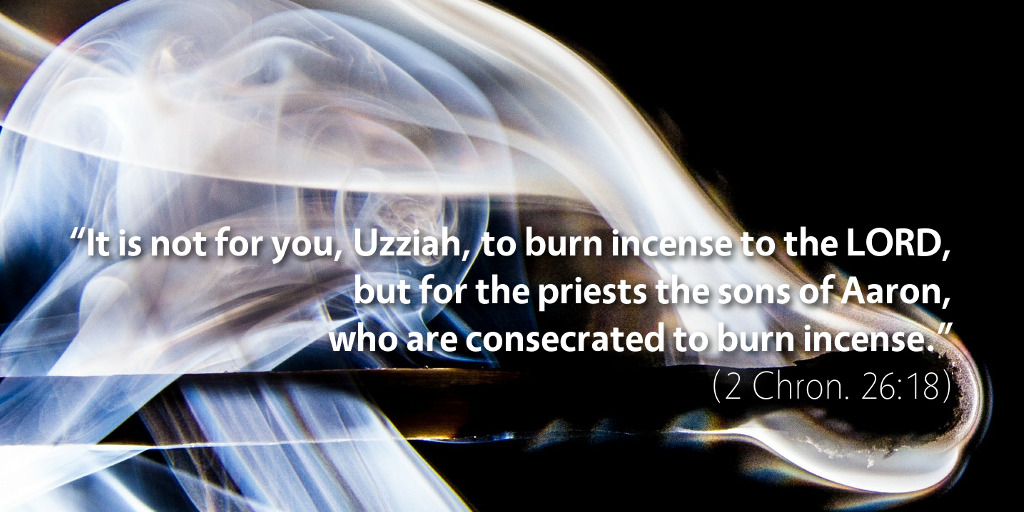Bible Readings for December 22nd
2 Chronicles 26 | Revelation 13 | Zechariah 9 | John 12
Uzziah, the king we read about in 2 Chronicles 26, also goes by the variant name Azariah in the record of his reign in 2 Kings 15:1–7. His mention in 2 Kings 15 is fairly brief, mixed in between all the accounts of Israel’s kings, but there we find this statement without any explanation: “And the LORD touched the king, so that he was a leper to the day of his death, and he lived in a separate house” (2 Kgs. 15:5). Why would Yahweh, all of a sudden, strike a relatively godly king (2 Kgs. 15:3) with leprosy? While 2 Kings does not say, we find out the rest of the story in our reading today.
Even though during most of Uzziah’s life he has faithfully sought Yahweh, and Yahweh has therefore made him prosper (2 Chron. 26:5), the king becomes proud in his strength toward the end of his life (2 Chron. 26:16). Because of his pride, he wickedly enters the temple of Yahweh to burn incense, even though he is forbidden to do so as a king from the line of David, since he is not a priest from the line of Aaron. The priests faithfully stand up to Uzziah, and when Uzziah responds in anger, Yahweh strikes him with leprosy, and he lives out the rest of his days quarantined from the rest of the people—and particularly, quarantined from the temple—in his disease (2 Chron. 26:16–23). Uzziah, we should remember, was not the first king to usurp the role of the priests—King Saul also offered a sacrifice rather than waiting for Samuel to come to offer it in 1 Samuel 13. The consistent message through the Old Testament is that Israel’s kings may not approach God as priests.
But yet, when Jesus came into the world, he came to become our high priest forever, despite being a king from the line of David and not from the line of Aaron. For this reason, Hebrews 7 points us back to the example of the king-priest Melchizedek from Genesis 14, who was greater than Abraham (and therefore greater than Levi), as well as to the prophecy from Psalm 110:4 that some coming king would also be “priest forever, after the order of Melchizedek.” Jesus becomes a priest, but not by pridefully demanding the role as Uzziah does in 2 Chronicles 26. Rather, the Father appointed Jesus as a priest because of the weakness and uselessness of the former priesthood (Heb. 7:18) so that Jesus might save us to the uttermost and permit us to draw near to God through him (Heb. 7:25).
God’s presence is never to be taken lightly, but because of Jesus, let us draw near to God together through Christ, our great high priest, who always lives to make intercession for us.
Podcast: Play in new window | Download (4.4MB) | Embed
Subscribe: Apple Podcasts | RSS | More

Scripture quotations are from The Holy Bible, English Standard Version copyright © 2001 by Crossway Bibles, a division of Good News Publishers. Used by permission. All rights reserved.


